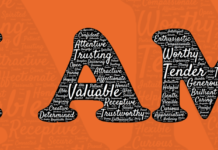It has become a meme within LGBTQ+ circles: When the clock strikes midnight on June 1st, companies and corporations on social media dress their posters in rainbow colours. Their logos display the pride flag, and it seems like every company suddenly holds values of equity, diversity, inclusion and commitment to combating marginalization… until June is over, and all of the logos return to normal. With an uncritical eye, it may seem that these colourful advertisements are increasing representation and promoting a mainstream culture of inclusion and pride for LGBTQ+ folk — however, the truth is much more insidious.
These displays of so-called inclusion are examples of a concept called “rainbow capitalism” (sometimes called “pink capitalism” or “pinkwashing”), referring to corporations who take advantage of the purchasing power of the LGBTQ+ community by marketing their brand and products using Pride-related themes.
For many LGBTQ+ individuals, deciding where to shop requires careful consideration, since ultimately very few people want to financially support companies that back queerphobic politicians or bills, or have queerphobic people in positions of power (e.g. CEO). Thus, to continue driving consumerism and encourage queer people to financially support their company and feel secure while doing it, many companies take advantage of Pride Month in particular to repaint their marketing rainbow, sell Pride-themed merch, and even donate a small portion of proceeds to LGBTQ+-oriented charities — all while upholding the systems that oppress queer people in other areas of their lives. Rainbow capitalism is targeted, strategic, and it sees the queer community as a means to profit.
One of the greatest issues with rainbow capitalism is how it misconstrues the entire point of Pride, particularly the historical element. Pride, as we know of it in the Western world, took off with the Stonewall Riots of 1969. The first Pride was a powerful demonstration of resistance to queerphobic police violence and, more broadly, LGBTQ+ oppression. This sentiment has never faltered. For years, Pride has not simply been a party or a parade, it has been a celebration of an ongoing fight for liberation.
I attended Pride Toronto in 2018, and it was my first Pride celebration. It was a fantastic experience for me as a young queer person — thousands of people celebrating the LGBTQ+ community, numerous independent queer vendors, loud music, drag artists, colourful flags, and big smiles everywhere. It was a beautiful celebration of radical acceptance and diversity. I connected with a handful of other queer people who spotted me in the crowd and recognized our similarities, and it filled my heart with joy. At times, even a grand celebration such as Pride Toronto felt raw, authentic, and homegrown.
However, I will never forget the corporate billboards — they were Pride-themed, plastered everywhere, and fully using this opportunity to boost their Pride advertising campaign, social and political context be damned. I remember the many corporations that walked in the parade handing out rainbow corporate merchandise: TELUS, RBC, SkipTheDishes, Winners, Marshalls, Homesense, and countless others.
Ultimately my overall experience had not been dampened by their presence, but as I drove home with a bag full of free corporate merchandise, a question arose in the back of my head: Why do these corporations get to lead the parade during Pride, literally and metaphorically? Even if these corporations are donating thousands of dollars to charities such as The Trevor Project or The 519, Why does it feel disingenuous?
Years later, I have reached the answers to these questions. At the end of the day, Pride will always be more than a parade to me. It is, and always has been, political. It is a fierce proclamation of how far we have come as a community — our accomplishments, our liberation, our beauty and uniqueness — as well as all those we have lost due to centuries of queerphobia. We dance in the streets for those who cannot afford to come out of the closet and dance with us.
Rainbow capitalism does not fit into this picture. Multibillion dollar corporations do not represent our pride and grief, in spite of the facade that capitalism wants to create. Consumerism paints a deceitful picture of free choice, but freedom is not having a dozen different brands of soda to choose from in the grocery store, even if the can is coloured rainbow and the corporation claims to celebrate Pride with us. To quote the writer Kravitz M. in his article “On Hyperpersonalized Sexual Identity,” “Many people think LGBTQ liberation is achieved when people have a plethora of options to choose from to perfectly fit their being, but this is nothing more than capitalist market logic: ‘more options for the consumer = happier consumer.’ […] In reality, this sense of freedom is illusory. Sexualities shouldn’t be commodities, and buying into the branding distracts us from change.”
Then how do we create the change? The answer to this issue is complicated, and it becomes a double-edged sword. We need to be critical of rainbow capitalism and the corporations that feed into it, yet ultimately they still hold power and wealth that can be redistributed to initiatives that work tirelessly to uplift the lives of LGBTQ+ individuals. We can decide to lift some of our dependency on corporations to represent and speak for us by actively supporting LGBTQ-owned businesses, yet this suggestion is complicated in itself. The way things stand, there will continue to be billboards and corporate merch at Pride festivals. Fighting a concept that feels so much bigger than ourselves, as individuals, is convoluted, since we all live and work under capitalism.
Having said this, I think one powerful way to fight the issue is to remember that there is strength in numbers. Collective action is a direct challenge to individualistic capitalism and, after all, we cannot dismantle such a great issue if we are made to carry the weight individually.
We should hold the power, not the corporations. We will only ever be free when we stop feeding into the strategic processes that only seek to profit off of our joys and losses, and we return to our roots as an interdependent community that relies on each other — for survival, for fortitude, for representation, for hope.































